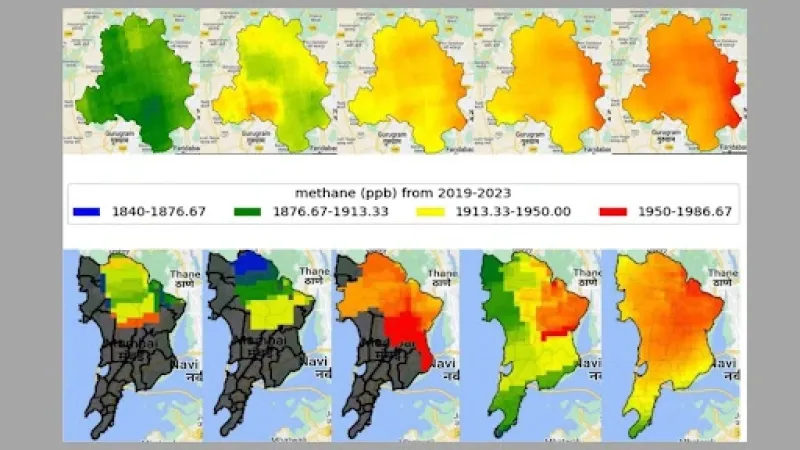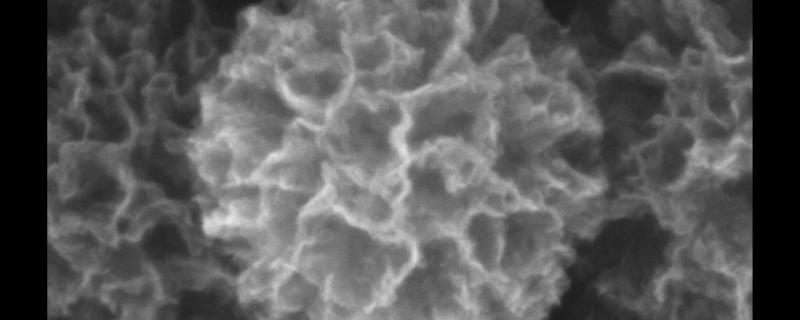द जॉय ऑफ साइंस के एक पिछले प्रकरण में शाम्भवी चिदंबरम ने प्राध्यापक श्रवण वशिष्ठ से, जो पॉट्सडैम विश्वविद्यालय, जर्मनी के भाषा विज्ञान विभाग में प्राध्यापक हैं, साइकोलिंग्विस्टिक्स के आनंद के बारे में और अन्य मुद्दों पर बात की। इस साक्षात्कार में, प्राध्यापक वश
Archives
Researchers show how free-ranging dogs modify their behaviour and personalities based on our presence in urban areas.
Ever looked at those tiny, green, olive-like capers in your pasta and wondered where they come from? Capers, also called Capparis, is the largest genera in the Capparaceae plant family and consists of around 139 species spread across the tropics. Found in arid habitats, these plants are mostly shrubs, and their flower buds and fruits are widely used as a pickled condiment. In a recent study, researchers from Pune's Agharkar Research Institute (ARI) and China's Zhejiang University have explored the genetic traits of two varieties of capers—spinosa and herbacea.
Researchers from IIT Bombay find how temperature, humidity and properties of different surfaces influence the evaporation rates of respiratory droplets infected with COVID-19.
In a recent study, herpetologists have discovered three new species of geckos belonging to the genus Cnemaspis. These geckos are thought to be endemic to the rocky granite boulders found in the Mysore plateau region of Karnataka.
COVID-19, the pandemic that has shaken the world, will perhaps change our lives forever. Often, we now talk of a ‘pre-COVID’ world, where business was as usual, and a ‘post-COVID’ world which is the new normal. While the disease, caused by a tiny virus, has affected millions, it has also brought to fore some often-ignored challenges and opportunities to build a better tomorrow. Science has been in the forefront, driving these monumental changes across the world—from understanding the virus and designing a vaccine, to throwing insights on how we could prepare for and prevent the next pandemic.
A recent study by researchers at National Centre for Radio Astrophysics (NCRA) in Pune, India, explains the anomaly in the sun's atmospheric temperature.
शोधकर्ताओं ने पानी में उपस्थित दूषित भारी धातु पदार्थों को एकल चरण प्रक्रिया से हटाने के लिए एक नए पदार्थ की रचना की है।
Researchers develop a powerful stochastic neuron, like those in our brain, using random access memory to aid breakthroughs in artificial intelligence


![A free-ranging dog amidst a market [Image credits: Shubhra Sau] With humans around, dogs on the street tend to be friendlier](/sites/researchmatters/files/styles/large_front_800x320/public/image1_12.png?itok=ewUASeMC)
![Salted capers [Image Credits: James F. Carter / CC BY-SA] The capers in your pasta are a lot more different than you think](/sites/researchmatters/files/styles/large_front_800x320/public/image1_12.jpg?itok=KwScZpe9)

![Cnemaspis bangara, one of the new species discovered. [Image Credits: Tejas Thakeray] Researchers find three new species of geckos lurking under granite rocks in the Mysore Plateau](/sites/researchmatters/files/styles/large_front_800x320/public/gecko1_23june.jpg?itok=7UFr3URg)

![Solar flares - [Image credits: Solar Dynamics Observatory / Public domain] Radio-images of the Sun explains the anomaly in its atmospheric temperature](/sites/researchmatters/files/styles/large_front_800x320/public/arcing_active_region.jpg?itok=clat14v5)

